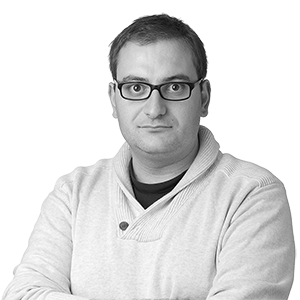Everything you can't see about Pau Cubarsí's selectivity
The center back is the only one from the 2007 generation who has moved up to the first team and is preparing to go to university.


BarcelonaThe history of professional football is full of players who have dropped out of school to focus on sports. And not just those at big clubs like Barça, Espanyol, Girona, or Real Madrid. Early contracts, even for modest amounts, cause many teenagers—and, unfortunately, some families—to lose sight of the world and consider going to school a waste of time; that it's better to train to climb the leagues and earn more and more money. Those who think this way barely finish high school. Over the years, the minority of footballers who are successful and make a career in the First or Second Division earn enough money to make up for it. But the vast majority fall by the wayside or end up retiring in their thirties without any academic training or the possibility of saving. That's when the real problems begin.
One of the distinguishing features of La Masia is precisely that it combines sports training with academic training. So much so that one of the essential requirements to remain in Barça's youth system, regardless of the sport, is to get good grades in school. Failing or showing little interest can lead to expulsion. In return, the club makes it as easy as possible for students to combine sport and studies. There are agreements with some schools and, since 2020, an evening high school where residents can attend classes from Sant Joan Despí every weekday, from 3 a.m. to 8 p.m. This is the path followed by footballers like Pau Cubarsí, who is currently taking the university entrance exams (PAU).
Cubarsí isn't the only member of the 2007 class immersed in the university entrance exams. Teammates like Max Bonfill (youth B) and Quim Junyent (youth A) are also focused on the PAU (University Entrance Exams). The difference is that the Estanyol center-back is already part of the first team and has signed a contract that guarantees him around four million euros per season until 2029. However, he's preparing for university studies. As he's stated in several interviews, he'll begin—if his grades are good—business administration and management (ADE). However, he'll take it easy and space out his courses. "He's not a student who plays football, he's a player who studies. If he wants to get a degree, he'll do it. It doesn't matter if instead of three years, it ends up taking five," said sources at the Sports City.
Combining classes with football hasn't been easy, especially during weeks with a Champions League match, when he was forced to miss up to two days of school due to the competition. "When that happens, I have to ask for the notes or pay more attention the next day so I don't miss anything," he admitted a few months ago on RAC1. However, he's passed everything on the first try.
Marc Bernal completes high school and opts for a vocational training program.
Marc Bernal also completed his A levels at La Masia, although he didn't take the university entrance exams. The Berguedá native burst onto the scene at the start of the season and earned a place in Hansi Flick's starting lineup. But a serious injury at the end of August in Vallecas sidelined him for the season. Seeing his potential, Barça made a gesture and in September extended his contract, which expires in 2026 with three more optional years. Since then, he has combined recovery with his studies. "It was tough, it was a mountain for him," admit those close to him. He passed the course, but his path doesn't involve university but rather a training program, likely dedicated to sports and physical education.
The most notable name from the 2007 generation is Lamine Yamal, who also recently renewed his contract, becoming one of the highest-paid players in the first team. An "exceptional" case, as President Joan Laporta said. But, at the same time, he's one of those who've had the hardest time getting rid of the high school diploma. Last summer, he passed compulsory secondary education (ESO) – he was a year behind – and has put his training on hold. At La Masia, the academic requirement ends here, with the high school diploma. Once the qualification is obtained, Barça recommends that the athlete continue training, although it's no longer mandatory.
The facilities Barça provides for members of La Masia to combine school and competition
Specifically, one of the images that went viral last summer was that of Lamine Yamal studying at the Spanish training camp during the European Championship. Beyond the video's propaganda aspect, Barça has an agreement with the Spanish Football Federation so that youth players who go to an international training camp leave with a defined study program to minimize the academic impact. Video calls are arranged with the teachers to resolve any existing doubts. Or, for younger players, a teacher can even be sent to the training camp so they can stay in touch with classes and complete the homework they've been assigned at school.
Once the members of La Masia turn 16, whether they continue studying or not, they receive additional training with their professional future in mind. Workshops are offered to learn about the worlds of finance, marketing, and advertising, as well as advice on public speaking, dealing with the media, and posting and interacting on social media.
